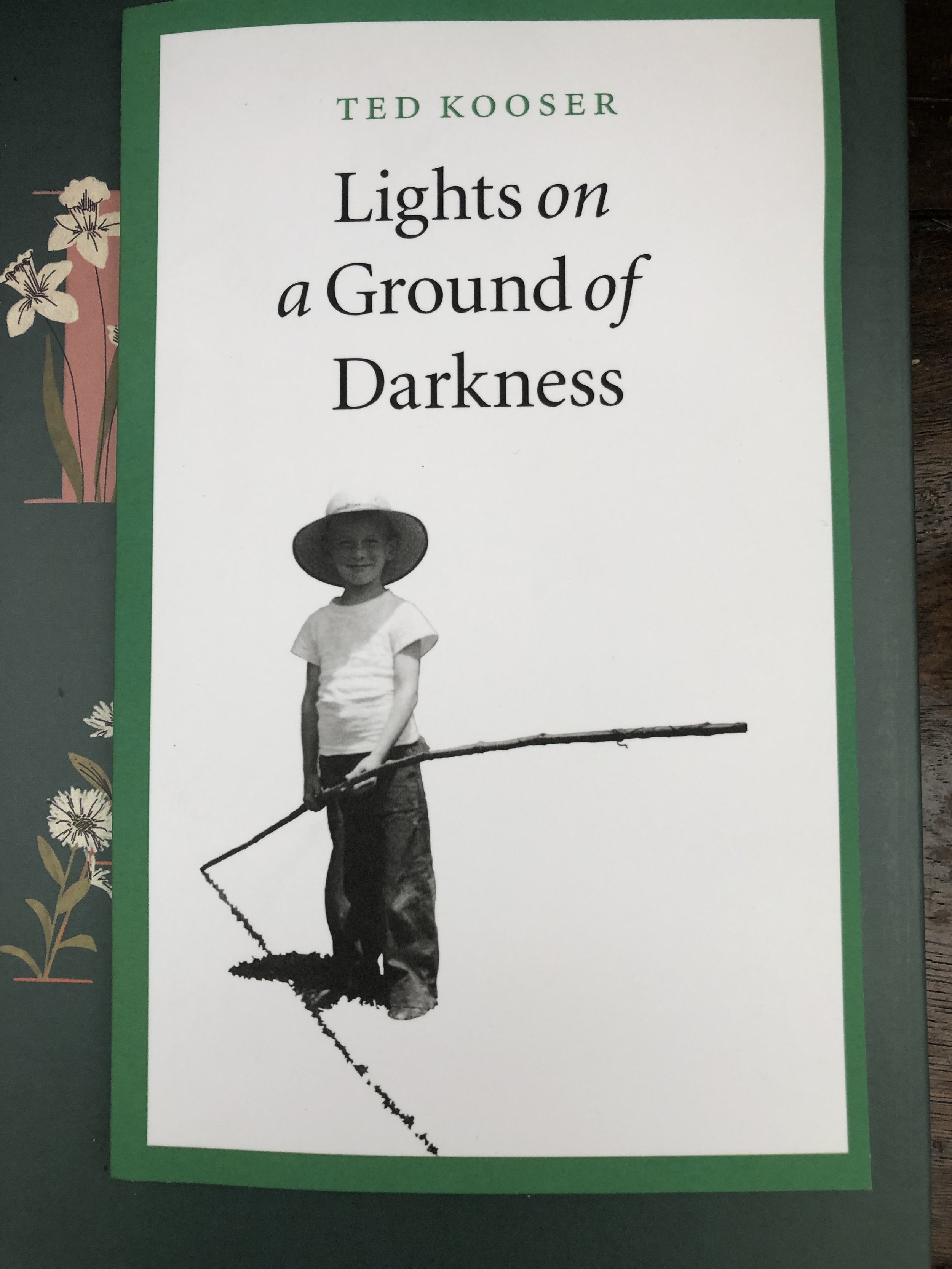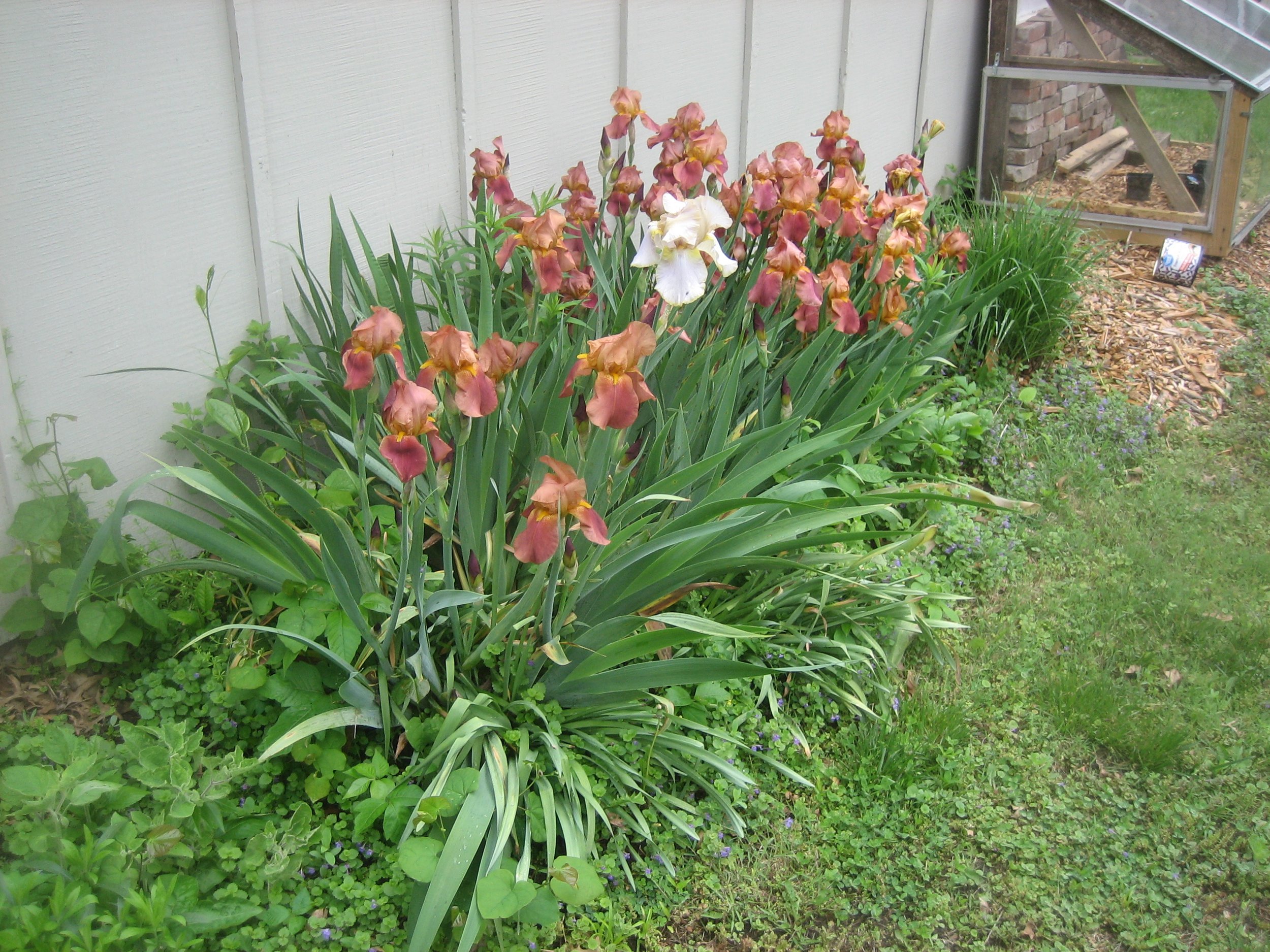Gardens, Poets, and Memory
Walking in my garden this morning, I stopped at a bench and sat still as the stones that surround my fledgling irises planted a year ago. One the color of butter has bloomed and I eagerly await the reemergence of the others. The splendiferous irises from my gardens at Boomerang Creek live on there and in my memory. I did not dig tubers and bring them when Kit and I drove 1,850 miles west to the Sierra Foothills to begin our next chapter in life two years ago. They would never have made it past the California agricultural check point where I was asked, “Are you carrying any plants with you?” As a former Busy Bee, Brownie, and Girl Scout, I cannot tell a lie.
Sitting there, I opened The Journals of May Sarton: The House by the Sea and read about the gardens at a cottage on the seacoast of Maine where she moved in 1973. As she grew into her new surroundings, she felt the presence of the prior owner in the gardens that surrounded the cottage. Sarton—a poet, novelist, and memoirist—wrote in her preface, “I like to think she would be glad to know that someone is working in her garden again, planting bulbs and tree peonies and azaleas, keeping it alive. She loved this place and her love of it and happiness in it have been contagious.”
My thoughts then travel to the gardens and poetry of Ted Kooser—a former U.S. poet laureate who shares my love of irises. In 2011, I learned from my friend Pat Fennell about Kooser’s beautiful book Local Wonders describing four seasons in the Bohemian Alps—the area north of Lincoln, NE where he lives, observes, writes, and paints. Before long, quite as spontaneous as spring, an epistolary conversation got underway. It happened this way.
After reading Local Wonders, I sent the poet a copy of Notes from Breakfast Creek (2008)—my first book chronicling my own window on the world from the Missouri countryside where Kit and I were living at the time. One day, I received a hand-painted watercolor postcard dated “Sunrise at 20 degrees on February 11, 2011.” After thanking me for my book, Kooser wrote —
Things here in the north are fine, though the UPS truck got stuck in our land and the driver broke my favorite snow shove. He drove away, at last, with smoking tires and nary a wave of farewell. All the best, Ted.
For over a decade now, we’ve exchanged observations on the seasons, gardens, politics, books, and all manner of critters—most notably the Orb Weaver spider. We’ve recommended books and keep umpteen UPS drivers busy delivering treasures from our personal libraries that we shared with each other. In 2016, I mailed a box of iris tubers from our garden at Boomerang Creek that are now thriving in Ted’s Garland, NE garden. The gift was inspired by Kooser’s beautiful Lights on a Ground of Darkness—an eloquent memoir of his mother’s Iowa family. “Writing this book,” he noted, “was the most important work I’ve ever undertaken because it was my attempt to keep those beloved people alive against the relentless erosion of time.”
In the Iowa of Kooser’s childhood, yellow, pink, and blue irises had been transplanted from house to house over the years. Similarly, the irises I shared with him came from gardens all around southern Boone County, MO. Like his mother’s irises, mine had been thinned by local gardeners from dense clusters in their backyards and shared over time with friends throughout the community.
A few years later, Kit and I drove to Wyoming and on the way back stopped at Ted’s home for a visit. As we pulled into the driveway, we spotted him on the porch where he and his dog had been waiting for our arrival. It was July and hot and just happened to be National Ice Cream day. He had baked chocolate chip cookies and invited us inside for a glass of iced tea and a bowl of vanilla ice cream.
That magical afternoon, we fell into comfortable conversation as if we had known each other for a lifetime. After signing and exchanging copies of our books, Ted took us on a tour of the grounds, outbuildings, his library, and the flowerbed where irises from my garden had happily taken root.
This morning as I look up from my early morning garden meditation, I feel the presence of these two writers whose poetic prose captures their observations on life both up close and from a distance. Sarton wrote, “Flowers, friends and writing are threads of continuity under tumultuous times.” Kooser understands that in gardens we retrace footprints that connect us to the mysteries that lie in memory. Along the way, we hope for illumination and understanding.






